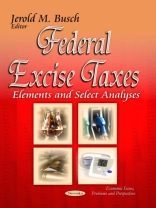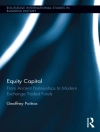There are four common types of excise taxes: (1) sumptuary (or "sin") taxes, (2) regulatory or environmental taxes, (3) benefit-based taxes (or user charges), and (4) luxury taxes. Sumptuary taxes were traditionally imposed for moral reasons, but are currently rationalized, in part, to discourage a specific activity that is thought to have negative spillover effects (or "externalities") on society. Regulatory or environmental taxes are imposed to offset external costs associated with regulating public safety or to discourage consumption of a specific commodity that is thought to have negative externalities on society. Benefit-based taxes (which include user charges) are imposed to charge users of a particular public good for financing and maintenance of that public good. Lastly, luxury taxes are primarily imposed as one way to raise revenue, particularly from higher-income households. This book provides an introduction and general analysis of excise taxes. First, a brief history of U.S. excise tax policy is provided. Second, the various forms of excise taxes and their respective administrative advantages and disadvantages are described. Third, the effect of federal excise taxes on federal, state, and local tax revenue is discussed. Fourth, the economic effects of various types of excise taxes are analyzed. The effects on consumer behavior and equity among taxpayers could be important issues for assessment of current excise tax policy or for the design of new excise taxes.
Jerold M Busch
Federal Excise Taxes [PDF ebook]
Elements and Select Analyses
Federal Excise Taxes [PDF ebook]
Elements and Select Analyses
Koop dit e-boek en ontvang er nog 1 GRATIS!
Formaat PDF ● Pagina’s 103 ● ISBN 9781629484846 ● Editor Jerold M Busch ● Uitgeverij Nova Science Publishers ● Gepubliceerd 2013 ● Downloadbare 3 keer ● Valuta EUR ● ID 7223822 ● Kopieerbeveiliging Adobe DRM
Vereist een DRM-compatibele e-boeklezer












